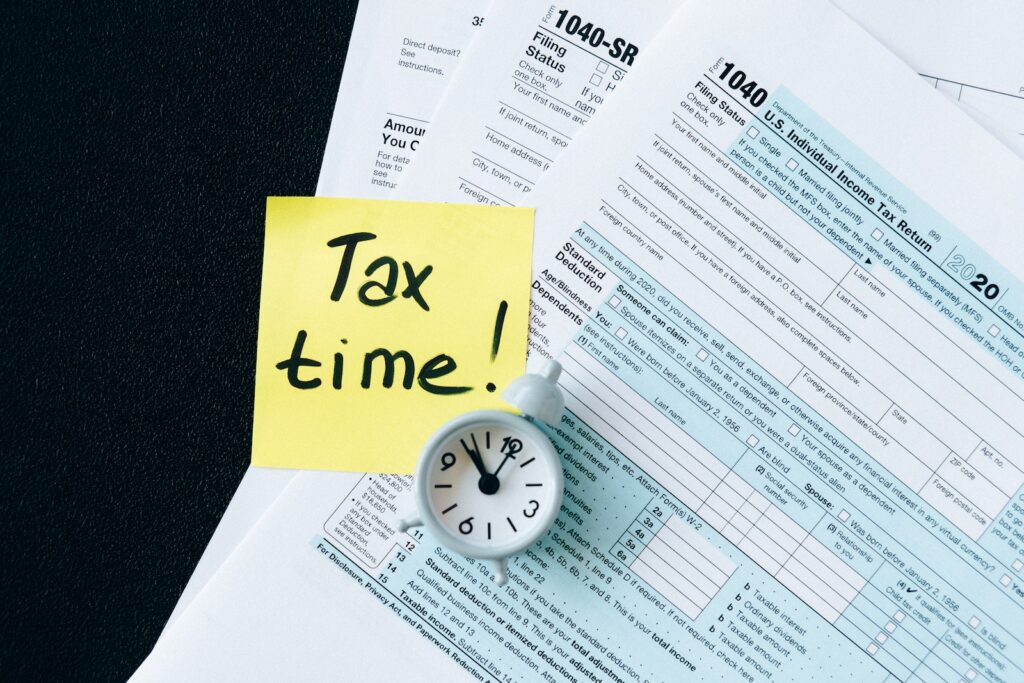Unveiling the Secrets: Common Misconceptions About Tax Planning for Real Estate
As an investor or buyer in the real estate market, having a solid grasp of tax planning is essential to optimize your profits and reduce your financial obligations. Unfortunately, there are widespread misunderstandings surrounding this subject that can result in expensive errors.
This article aims to dispel prevalent misconceptions associated with tax planning in the real estate sector, equipping you with valuable knowledge to make well-informed choices. Maximizing returns and minimizing liabilities require a comprehensive understanding of the intricacies involved in tax planning for real estate.
By debunking common myths and misconceptions, we aim to provide you with the necessary insights to navigate the complexities of tax regulations. Armed with accurate information, you can make informed decisions that will have a positive impact on your real estate investments, ensuring you make the most of your financial resources.
The Prevalence of Misconceptions
Tax planning is a complex area, and it’s not surprising that misconceptions abound. Many individuals rely on hearsay, outdated information, or generalizations, which can result in inaccurate beliefs about how tax laws apply to real estate transactions.
By shedding light on these misconceptions, we aim to empower you with accurate knowledge that will help you navigate the world of real estate taxation more effectively.
Misconception #1: “All Real Estate Investments Qualify for Tax Deductions”
One of the most common misconceptions is that all real estate investments automatically qualify for tax deductions. While it is true that many real estate expenses are deductible, not all investments or expenses will meet the criteria set by the tax laws.
It is essential to understand the specific rules and regulations governing tax deductions in the context of your investment strategy.
Debunking Misconception #1: The Internal Revenue Service (IRS) provides guidelines for deductible real estate expenses, such as mortgage interest, property taxes, repairs, and depreciation.
However, there are limitations and eligibility criteria that must be met. Consult with a qualified tax professional to determine which deductions are applicable to your specific situation and ensure compliance with the tax laws.
Misconception #2: “Real Estate Investing Is Always a Tax Shelter”
Another prevalent misconception is that real estate investing always provides significant tax benefits and serves as an effective tax shelter. While real estate can offer advantageous tax strategies, such as depreciation and capital gains treatment, it is not automatically a tax shelter in every circumstance.
The extent of tax benefits depends on various factors, including the investor’s income, the nature of the investment, and the applicable tax laws.
Debunking Misconception #2: Real estate can indeed be a tax-efficient investment, but it is crucial to evaluate each opportunity based on its unique merits.
Tax benefits should never be the sole reason for investing in real estate. Conduct a thorough analysis of the potential risks and rewards, and consult with a knowledgeable tax advisor to understand how specific tax strategies may apply to your investment portfolio.

Misconception #3: “You Can Avoid Taxes by Flipping Properties”
Flipping properties, which involves buying and quickly selling for a profit, is often believed to be a tax-free endeavor. However, this is a misleading assumption.
The IRS categorizes property flipping as a business activity rather than an investment, which means that the income generated from flipping properties is generally subject to ordinary income tax rates.
Debunking Misconception #3: Profit earned from property flipping is considered ordinary income and is subject to federal and state income taxes.
It’s crucial to account for the tax implications of property flipping when planning your investment strategy. Consult with a tax professional to ensure compliance and accurate tax reporting for your flipping activities.
The Origins of Misconceptions
The origins of these misconceptions can be attributed to a variety of factors. In some cases, individuals may have misunderstood or misinterpreted the tax laws. Other factors include outdated information, reliance on hearsay, and the general complexity of tax laws.
Additionally, the proliferation of misinformation on the internet and within informal networks can contribute to the perpetuation of these misconceptions.
Insights and Lessons Learned
Correcting these misconceptions provides valuable insights and lessons for real estate investors and buyers. By debunking these myths, you can gain a clearer understanding of the tax implications associated with your real estate activities, enabling you to make more informed decisions. Here are some key insights to take away:
- Stay Informed: Tax laws are subject to change, and it is crucial to stay up-to-date with the latest regulations. Consult reputable sources, such as tax professionals, legal advisors, and official IRS publications.
- Individualized Approach: Real estate tax planning should be tailored to your specific circumstances. Avoid relying on generic advice or assuming that one size fits all. Seek personalized guidance to ensure compliance and maximize your tax benefits.
- Professional Guidance: Engaging the services of a qualified tax professional with expertise in real estate taxation is essential. They can provide valuable insights, help you navigate complex tax laws, and optimize your tax planning strategies.
- Evaluate the Entire Picture: Consider tax implications as part of your overall investment strategy. While tax benefits are important, they should be weighed alongside other factors, such as cash flow, risk management, and long-term financial goals.
Challenging Preconceived Notions
It is vital for readers to challenge their preconceived notions and approach tax planning for real estate with an open mind. By questioning assumptions and seeking accurate information, you can avoid costly mistakes and make more informed decisions.
Embrace a mindset of continuous learning and be willing to adapt your strategies based on new insights and changes in tax laws.
Key Takeaway and Call to Action
Understanding the common misconceptions surrounding tax planning for real estate is paramount for successful investment and buyer decisions. By debunking these myths, you can approach tax planning with greater confidence and make informed choices that align with your financial goals. To summarize:
- Seek accurate information and professional guidance.
- Personalize your tax planning approach.
- Evaluate the entire investment picture.
- Challenge preconceived notions and continuously learn.
Now, armed with the knowledge of these common misconceptions, take the necessary steps to review your tax planning strategies, consult with experts, and ensure compliance with the relevant tax laws. By doing so, you can optimize your real estate investments and make informed decisions that contribute to your long-term financial success.
Unleashing the Power of Misconceptions About Tax Planning for Real Estate
Understanding the impact of misconceptions is vital not only for avoiding pitfalls but also for maximizing the benefits of tax planning for real estate. Let’s explore some practical examples that highlight the significance of dispelling these misconceptions:
- Example 1: Depreciation Benefits
- Many investors mistakenly believe that depreciation benefits are only applicable to residential properties. However, commercial properties, rental properties, and even certain components of real estate investments, such as improvements and furnishings, may also qualify for depreciation deductions.
- By understanding the broad scope of depreciation benefits, investors can strategically leverage tax planning to optimize their cash flow and overall return on investment.
- Example 2: 1031 Like-Kind Exchanges
- There is a common misconception that 1031 exchanges, also known as like-kind exchanges, are limited to the same type of property, such as swapping one residential property for another. In reality, the like-kind exchange provision allows for a broader range of possibilities.
- It can apply to various types of real estate, including commercial properties, vacant land, and even certain types of leasehold interests. Understanding the flexibility of like-kind exchanges can open up opportunities for investors to defer capital gains taxes and strategically reallocate their investment portfolio.
- Example 3: Passive Losses and Real Estate Professionals
- Some individuals believe that real estate losses can only be offset against real estate income, and that real estate professionals are exempt from this limitation. However, tax laws provide certain exceptions and qualifications for individuals who meet the criteria of being a real estate professional.
- If you actively participate in real estate activities and meet specific requirements, you may be eligible to deduct real estate losses against other forms of income, such as wages or business income. Recognizing these nuances can result in significant tax savings for qualified real estate professionals.
These examples highlight how dispelling misconceptions about tax planning for real estate can unlock valuable opportunities and optimize your tax position.
By understanding the intricacies of the tax code and seeking professional guidance, you can strategically structure your real estate investments and transactions to take full advantage of available tax benefits.

Unveiling the Secrets
Tax planning for real estate is a complex and nuanced subject that is often surrounded by misconceptions. By debunking these myths, understanding the origins of these misconceptions, and providing valuable insights, we have aimed to empower you to make more informed decisions.
Remember, staying informed, seeking professional guidance, and challenging preconceived notions are key to effective tax planning for real estate. By doing so, you can maximize your tax benefits, optimize your returns, and navigate the ever-changing landscape of tax laws with confidence.
So, take the knowledge you’ve gained from this article and apply it to your real estate investment journey. Consult with qualified professionals, evaluate your strategies, and always strive to expand your understanding. By doing so, you can unravel the secrets of tax planning for real estate and pave the way for financial success.
Now, it’s time for you to join the conversation. Share your thoughts and experiences in the comments below. Have you encountered any other misconceptions about tax planning for real estate? How did you navigate them? Let’s continue the discussion and help each other unravel the secrets of successful tax planning in the world of real estate.
